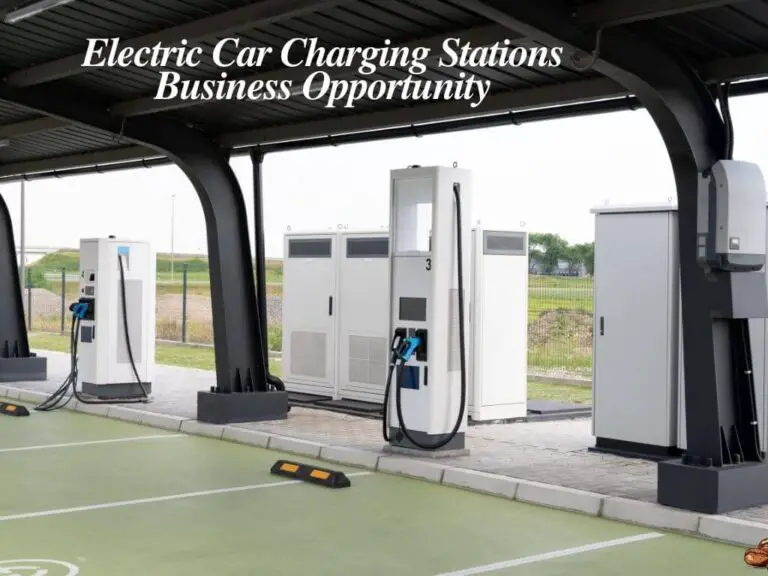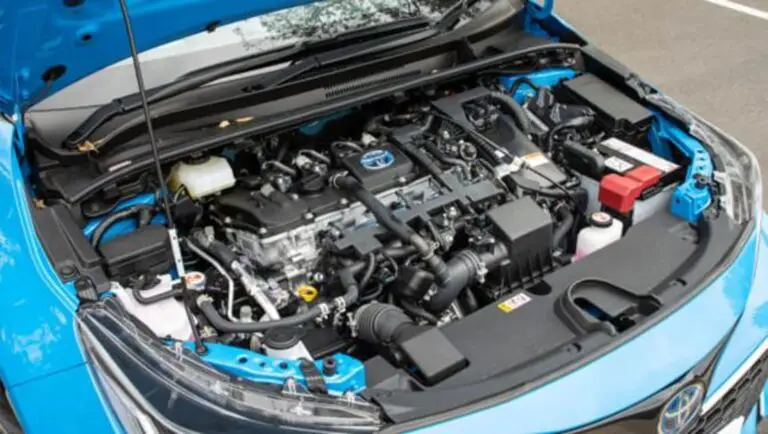The world is changing, and so is the way we think about transportation. Electric cars are at the forefront of this green revolution on wheels, offering a cleaner, more eco-friendly alternative to traditional gas-powered vehicles. But what does “better for the environment” really mean? Is it as simple as driving an electric vehicle (EV) and instantly becoming more sustainable?
The truth is a bit more nuanced. While electric cars have the potential to significantly reduce environmental damage, several factors influence just how green they are. From the emissions they save on the road to the environmental cost of their production and how we charge them, the full picture involves much more than simply plugging in and driving away.
So, are electric cars truly better for the environment? Let’s dive into the details and explore the many aspects that determine whether EVs live up to their green reputation.
How Electric Cars Reduce Emissions
One of the main reasons electric cars are hailed as an environmentally friendly option is their ability to reduce emissions, especially when compared to gasoline-powered vehicles.
Tailpipe Emissions: Zero While Driving
Electric vehicles have a major advantage over traditional cars—no tailpipe emissions. This means when you’re driving an EV, you aren’t releasing harmful pollutants like carbon dioxide (CO₂), nitrogen oxides (NOₓ), and particulate matter into the atmosphere. These are the same emissions responsible for global warming and poor air quality in cities. So, while your car silently glides down the road, the air stays a little cleaner.
Comparison to Gasoline Vehicles: A Breakdown of Greenhouse Gases
Gasoline-powered vehicles burn fossil fuels, and this process releases a significant amount of greenhouse gases (GHGs) like CO₂. In fact, according to the Environmental Protection Agency (EPA), the average gasoline vehicle emits about 4.6 metric tons of CO₂ per year. Electric vehicles, in contrast, produce no direct emissions while on the road. That alone can lead to a major reduction in GHG emissions, particularly in cities where traffic is dense, and the air quality is often poor.
Impact on Urban Air Quality
With more electric cars on the road, we see improvements in urban air quality. Fewer gas-powered cars mean fewer toxic emissions, which helps reduce smog and air pollution, particularly in densely populated areas. This improvement not only benefits the environment but also has significant health benefits, as it reduces the risks associated with breathing in polluted air, such as asthma, lung disease, and other respiratory issues.
However, while electric cars produce zero tailpipe emissions, there are other factors that influence their overall environmental impact, including how they are manufactured and powered.
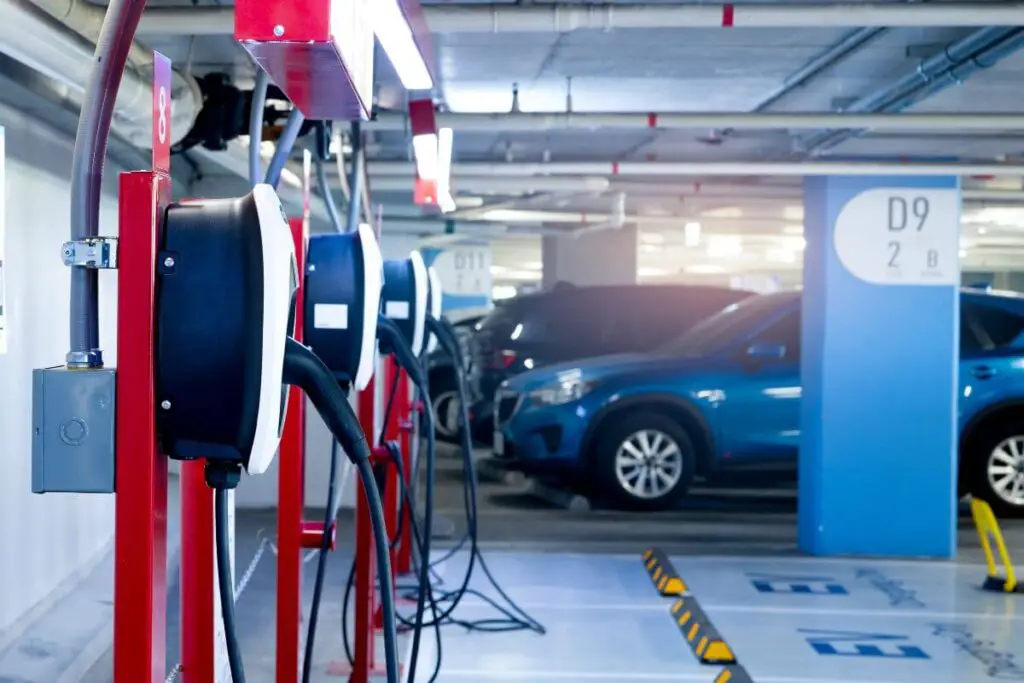
The Environmental Cost of Manufacturing Electric Cars
While electric vehicles (EVs) are greener on the road, the process of manufacturing them has its own environmental challenges. To fully understand whether electric cars are better for the environment, we need to look at how they’re made, especially when it comes to the production of their batteries.
Battery Production: Energy and Resource Intensive
Electric cars rely on large lithium-ion batteries to power their motors, and producing these batteries requires significant energy and resources. The extraction of materials like lithium, cobalt, and nickel is resource-intensive and often harmful to the environment. Mining for these materials can lead to deforestation, soil degradation, and water pollution. Additionally, the production of the batteries themselves is energy-intensive, often generating high levels of CO₂ emissions, especially in regions where manufacturing relies on fossil fuels.
Mining for Materials: The Environmental Toll
The raw materials used in EV batteries—lithium, cobalt, and nickel—come with their own environmental costs. For example, lithium extraction, primarily done in South America, can consume vast amounts of water, affecting local ecosystems and communities. Cobalt, much of which is mined in the Democratic Republic of Congo, is not only linked to environmental damage but also ethical concerns, such as poor labor conditions and child labor.
While electric cars don’t pollute the air while driving, the environmental toll of mining these essential materials is something that needs to be considered when assessing their overall green impact.
Comparison with Gasoline Car Manufacturing
Manufacturing traditional gasoline cars also has its environmental costs, such as metal extraction and energy consumption, but the production of electric vehicles—particularly their batteries—tends to have a higher initial carbon footprint. However, this is just part of the story. Over time, the emissions savings from driving an electric vehicle can outweigh the initial environmental cost of manufacturing, especially if the car is powered by renewable energy.
In summary, while the manufacturing of electric cars, particularly their batteries, is not without environmental consequences, the potential emissions savings during the car’s operational life may make up for it in the long run.
Energy Sources for Charging
The environmental benefits of electric cars go beyond their zero tailpipe emissions. However, a crucial factor that determines their overall environmental impact is how they’re charged. The source of electricity used to power these vehicles plays a significant role in their carbon footprint.
Renewable vs Non-Renewable Electricity
Charging an electric vehicle with renewable energy—such as solar, wind, or hydroelectric power—makes EVs significantly greener. When the electricity powering the vehicle comes from clean, renewable sources, the environmental benefits of an electric car increase dramatically, as there are no carbon emissions involved in the energy generation.
However, if an electric car is charged using electricity from coal, oil, or natural gas, the environmental benefits decrease. Fossil fuels generate large amounts of CO₂ and other pollutants when burned to produce electricity. In regions where the electricity grid relies heavily on these non-renewable sources, driving an electric car may still produce indirect emissions, although they are generally still lower than those of a gasoline vehicle.
Carbon Footprint of Charging: How Green is Your Electricity?
The overall carbon footprint of an electric vehicle depends heavily on where it is charged. For example, in countries or states where renewable energy sources are prevalent, the carbon footprint of charging an EV can be very low. In contrast, regions that rely on fossil fuels for electricity will see a higher carbon footprint from EVs. The cleaner the grid, the greener the electric car.
This variability means that electric cars can be much better for the environment in certain parts of the world, but less so in others. To maximize the environmental benefits of an EV, it’s crucial to consider where and how the electricity used to charge it is generated.
Regional Variability: Greener in Some Places Than Others
Electric vehicles are more eco-friendly in regions with a high share of renewable energy in the electricity mix. For instance, countries like Norway, which rely heavily on hydropower, or states like California, which are ramping up solar and wind energy, offer a much greener charging environment for EVs. In contrast, areas that still rely heavily on coal or natural gas for electricity generation may see less of an environmental benefit from electric cars.
Ultimately, the environmental impact of an electric vehicle is closely tied to the local energy infrastructure, making it important for drivers to consider where their electricity comes from.
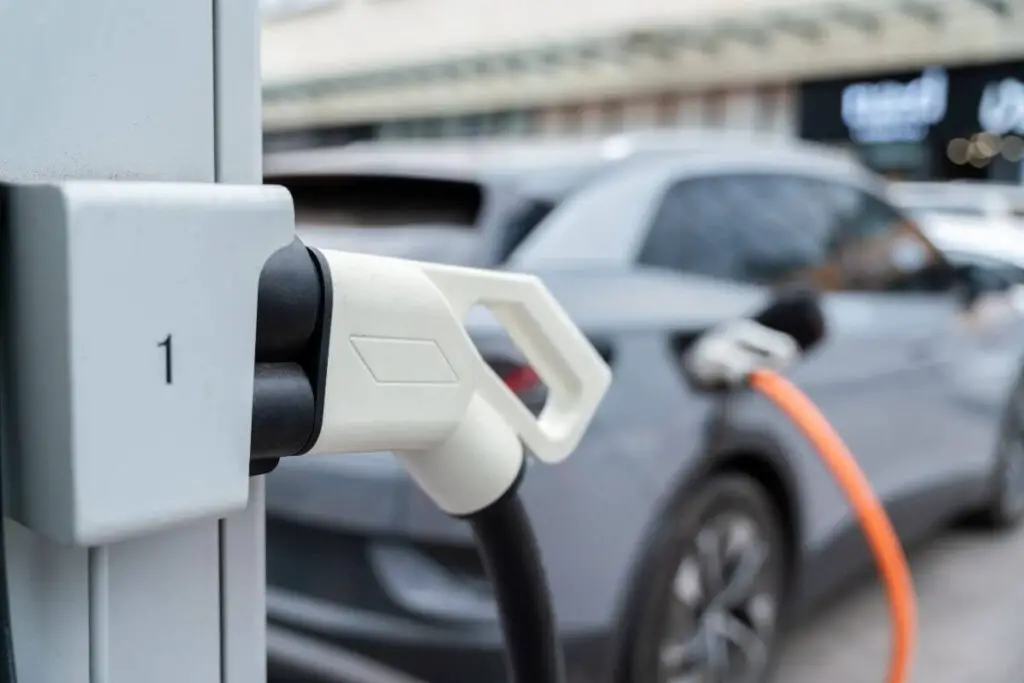
Electric Car Battery Disposal and Recycling
Electric cars offer many environmental benefits while on the road, but what happens when their batteries reach the end of their life? Proper disposal and recycling of electric vehicle (EV) batteries are essential to minimizing their environmental impact.
Challenges of Disposal: The Environmental Impact of Battery Waste
Lithium-ion batteries, which power most electric cars, have a limited lifespan. Once these batteries can no longer hold a charge, they need to be disposed of properly. Unfortunately, battery disposal poses significant environmental risks. If not handled correctly, old batteries can leak toxic chemicals, including heavy metals like cobalt, nickel, and manganese, which can contaminate soil and water.
In addition to the potential for environmental contamination, the sheer volume of battery waste is another concern. As more electric cars hit the road, the number of old batteries in need of disposal will increase, creating a growing waste management issue if recycling technologies don’t keep up.
Advances in Battery Recycling: Reducing Long-Term Impact
Fortunately, advancements in battery recycling are helping reduce the environmental toll of used batteries. Several companies and research initiatives are developing technologies to safely and efficiently recycle lithium-ion batteries, recovering valuable materials like lithium, cobalt, and nickel for reuse. This process not only helps reduce the environmental impact of mining new materials but also decreases the amount of waste headed to landfills.
One promising development is the rise of a “closed-loop” recycling system, in which batteries are recycled into new batteries. This circular approach can significantly cut down on the need for new raw materials and reduce the overall environmental footprint of electric vehicles.
Circular Economy Potential: A Sustainable Future for EV Batteries
The concept of a circular economy—where products are reused, repaired, and recycled rather than discarded—is gaining traction in the EV industry. As battery recycling technology improves, the potential for electric cars to become part of a more sustainable, closed-loop system grows. By recycling old batteries into new ones and reducing the reliance on mining, the long-term environmental impact of electric vehicles could be significantly reduced.
In the future, the success of this circular economy model could be a game-changer for the electric car industry, making EVs an even more eco-friendly choice.
Total Lifecycle Environmental Impact
To determine if electric cars are truly better for the environment, we need to evaluate their entire lifecycle—from production to disposal. This gives a more comprehensive view of their environmental footprint compared to traditional gasoline vehicles.
Carbon Footprint Over a Car’s Lifetime
While the manufacturing of electric vehicles, particularly their batteries, results in a higher initial carbon footprint, the overall emissions savings during the car’s operational life can offset this. Over time, electric cars produce fewer emissions than gasoline-powered cars, especially when they are charged using renewable energy.
According to studies, the average electric vehicle emits significantly less carbon dioxide over its lifetime compared to a typical gasoline car. This includes the energy consumed in production, the emissions saved while driving, and the eventual disposal or recycling of the vehicle. On average, it takes an electric car about 1 to 2 years to “pay back” the extra emissions from its production, depending on how it’s charged and driven.
The Role of Driving Habits: Mileage and Usage Patterns
The environmental benefits of electric vehicles also depend on how much and how often they are used. Higher mileage tends to favor electric cars in terms of emissions savings because they produce no tailpipe emissions while driving. The more you drive an electric vehicle, the more emissions you avoid compared to a gasoline car, making it more efficient over time.
For drivers who use their cars frequently and cover long distances, electric cars can significantly reduce their carbon footprint. On the other hand, for those who drive less or use their cars infrequently, the environmental benefits might take longer to materialize, as the initial environmental cost of production becomes harder to offset.
Second-hand Electric Cars: Extending the Green Benefits
Another factor that contributes to the overall sustainability of electric vehicles is the second-hand market. Buying a used electric car extends the vehicle’s lifespan, reducing the need for new production and the environmental impact associated with it. As the electric car market grows, the availability of second-hand electric vehicles is also increasing, providing more people with the opportunity to drive a greener vehicle without the emissions cost of manufacturing a new one.
By promoting the use of second-hand electric cars, we can further reduce the lifecycle environmental impact of these vehicles, making them an even more sustainable option.
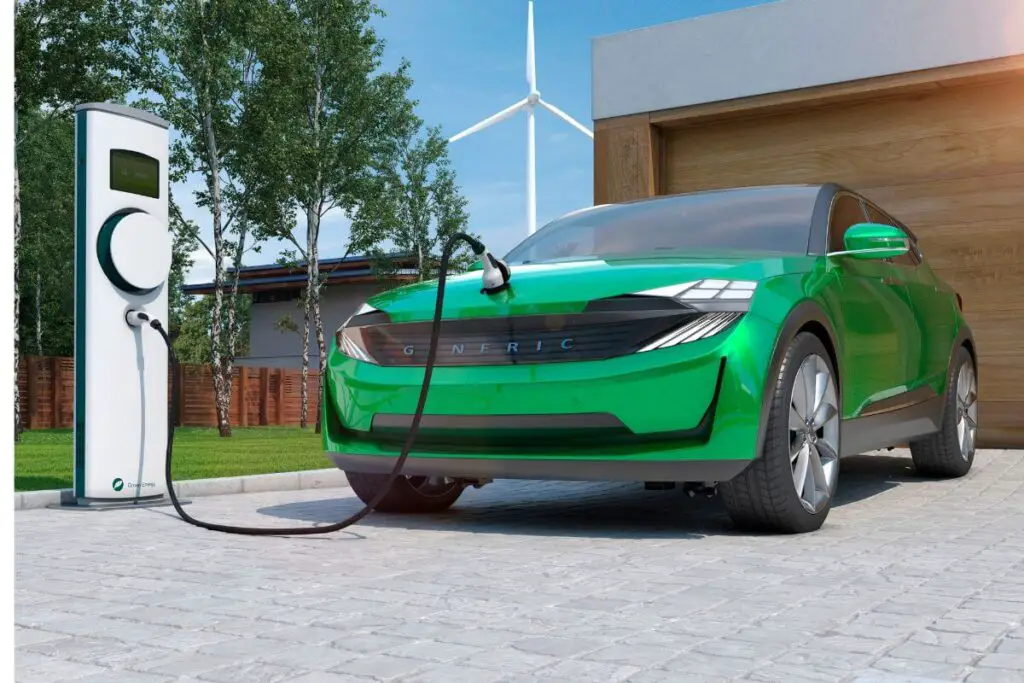
Future Technologies and Improvements
As the electric vehicle (EV) industry continues to evolve, several advancements and innovations are on the horizon that could further enhance the environmental benefits of electric cars. Here are a few key areas to watch:
Solid-State Batteries: A Greener Alternative
One of the most promising developments in battery technology is the advent of solid-state batteries. Unlike traditional lithium-ion batteries, which use liquid electrolytes, solid-state batteries employ solid electrolytes. This shift has the potential to improve battery efficiency, increase energy density, and reduce the overall environmental impact.
Solid-state batteries are not only safer and less likely to catch fire, but they can also be manufactured using more sustainable processes and materials. If commercialized successfully, these batteries could lead to electric cars that are lighter, have longer ranges, and are even more environmentally friendly than current models.
Renewable Energy Adoption: A Cleaner Charging Future
The environmental sustainability of electric vehicles is closely linked to the rise of renewable energy sources. As more countries transition to solar, wind, and other renewable energies, the grid becomes cleaner, which directly benefits electric vehicle users. Charging an electric car with renewable energy reduces its carbon footprint significantly, maximizing the environmental benefits of driving electric.
Government policies and incentives that promote renewable energy adoption will play a critical role in making electric vehicles even greener. With advancements in energy storage technology, such as home solar battery systems, drivers can charge their EVs at night using energy collected from the sun during the day.
Advancements in Recycling: Eco-Friendly Disposal Solutions
As the number of electric vehicles on the road increases, so does the need for effective recycling solutions. The development of advanced recycling technologies can significantly mitigate the environmental impact of battery disposal. Innovations that allow for the efficient recovery of valuable materials from old batteries can help create a closed-loop system, where materials are reused to manufacture new batteries.
Research is also ongoing into the possibility of repurposing old EV batteries for other applications, such as energy storage for homes or businesses. This not only extends the life of the batteries but also helps create a more sustainable and circular economy for electric vehicles.
Government Initiatives and Incentives
Government policies play a crucial role in promoting the adoption of electric vehicles and renewable energy sources. Incentives such as tax credits, rebates, and grants can encourage consumers to purchase electric cars and support the development of necessary charging infrastructure. Additionally, regulations aimed at reducing greenhouse gas emissions from all types of vehicles can further motivate consumers to switch to cleaner options.
With continued investment in research and development, as well as supportive policies, the future of electric vehicles looks promising for both drivers and the environment.
Conclusion
As we’ve explored throughout this article, the question of whether electric cars are better for the environment is not a straightforward one. While electric vehicles certainly have clear advantages—such as zero tailpipe emissions and the potential for reduced greenhouse gases—there are several factors that influence their overall environmental impact.
Summarizing Key Points
Electric cars can significantly reduce emissions while driving, improving air quality, especially in urban areas. However, the manufacturing process, particularly battery production, poses environmental challenges that cannot be overlooked. Additionally, the source of electricity used for charging plays a crucial role in determining the overall carbon footprint of electric vehicles. Regions that utilize renewable energy for charging can maximize the environmental benefits of EVs, while those still reliant on fossil fuels may see diminished returns.
The lifecycle analysis of electric vehicles shows that, over time, they tend to have a lower overall carbon footprint compared to gasoline-powered cars, particularly when driven frequently or when purchased second-hand. Furthermore, advancements in battery technology, renewable energy adoption, and recycling innovations hold great promise for making electric vehicles even more sustainable in the future.
Final Thoughts
So, are electric cars better for the environment? The answer is a resounding yes, but the degree of benefit varies based on several factors, including energy sources, manufacturing processes, and recycling practices. As we move towards a more sustainable future, the continued development of electric vehicles, alongside a commitment to clean energy and effective recycling methods, will be essential in mitigating their environmental impact.
FAQ’s
Is Electric Cars Actually Better For Environment?
Electric cars are indeed better for the environment. They emit fewer greenhouse gases and air pollutants than petrol or diesel cars, taking into account their production and electricity generation.
What Are The Disadvantages Of Electric Cars For The Environment?
Electric cars have some disadvantages for the environment. They require batteries that contain rare metals and their production emits more emissions. Their eco-friendliness depends on the source of their power. Electric cars can also be expensive and have limited driving range.
Additionally, there is a lack of charging points.
Why Gas Cars Are Better Than Electric?
Gas cars offer better value for money in the long run as they are cheaper compared to electric cars due to the high cost of electricity. Gas cars are a more economical choice for most people.

